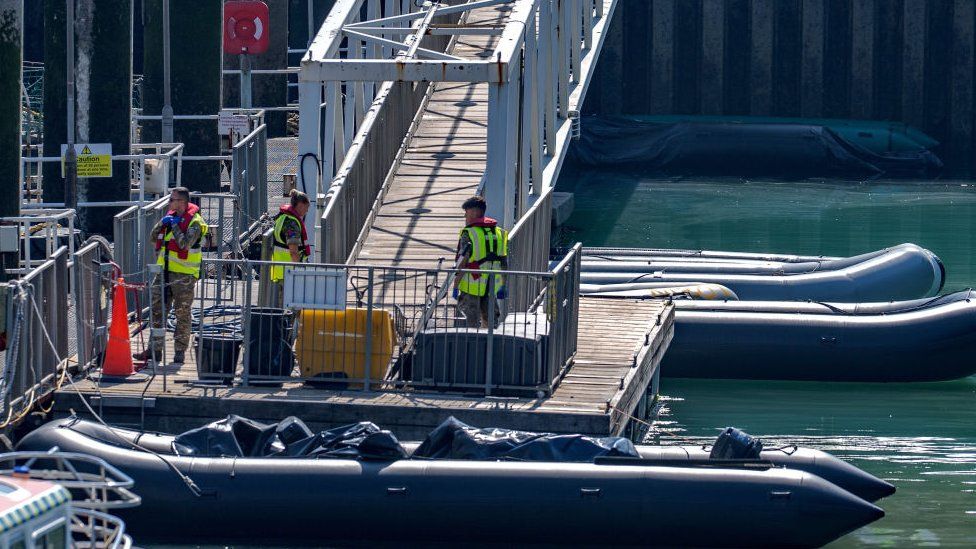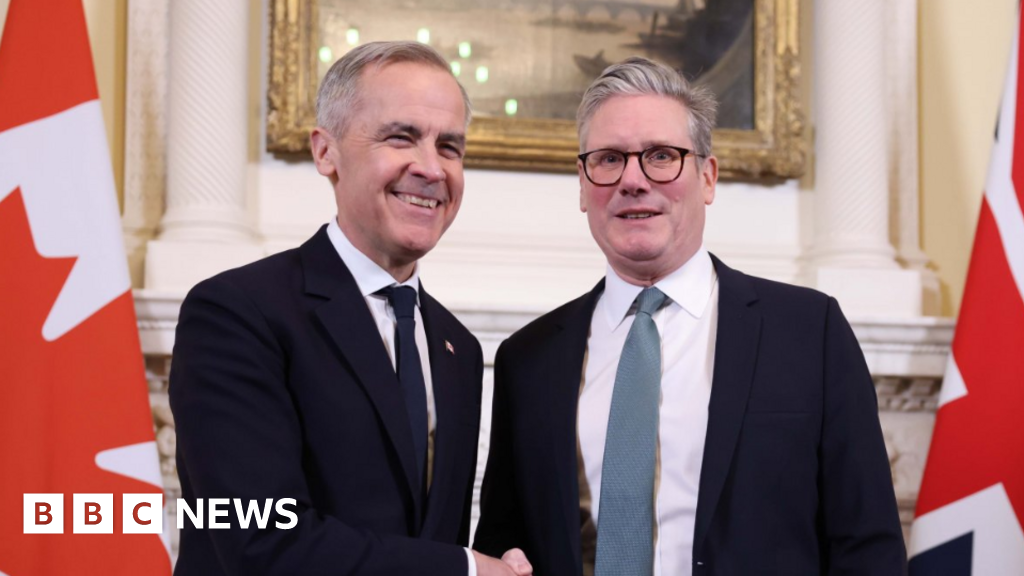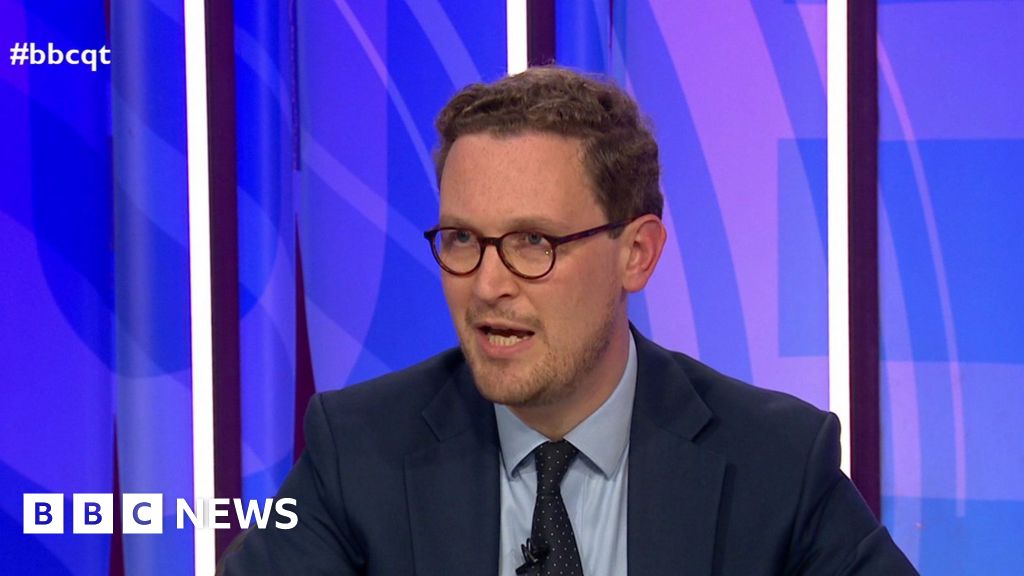ARTICLE AD BOX
 Image source, Getty Images
Image source, Getty Images
Some migrants who arrive in the UK in small boats or in the back of lorries could be electronically tagged under new Home Office plans.
A 12-month trial will target adults due to be removed from the UK after arriving via what the government calls "dangerous or unnecessary" routes.
The first to be tagged will likely be people who successfully challenged their removal to Rwanda this week.
Critics say the plan treats those fleeing persecution as criminals.
The Home Office said the trial, which began on Thursday in England and Wales, would test whether tagging helps maintain regular contact with asylum claimants and progresses their claims more effectively. It will also collect data on how many people abscond.
People who have been tagged may be subject to a curfew, and those who fail to comply with their conditions could be taken back to detention, or prosecuted.
It is unclear exactly how decisions will be made on who to tag, but Home Office guidance says it will not include children and pregnant women.
Caseworkers must also consider whether the device would cause serious harm to the migrant's mental or physical health, or whether they have been a victim of torture or modern slavery.
However, the guidance says these factors do not in themselves prohibit imposing a tag.
Those with the location-tracking device will be required to regularly report in person to an immigration centre or police station.
Analysis
By Simon Jones, BBC reporter
Ministers and Home Office officials were left hugely frustrated this week when their attempt to send a first group of migrants to Rwanda failed.
For years, they have been looking at ways of trying to bring down the number of people crossing the Channel in small boats - a figure that is already over 11,000 this year.
The idea of tagging some migrants will, the government hopes, show it is serious in getting tough on those it believes are exploiting the asylum system.
But it's not clear how many people will be tagged - or how keen immigration judges will be to introduce electronic monitoring as part of any bail conditions.
And groups supporting refugees say once again government policy will lead to vulnerable people being demonised.
Enver Solomon, chief executive of the Refugee Council, said: "It's appalling that this government is intent on treating men, women and children who have fled war, bloodshed and persecution as criminals.
"This draconian and punitive approach not only shows no compassion for very vulnerable people; it will also do nothing to deter those who are desperately seeking safety in the UK."
But a Home Office spokesperson said: "The government will not be deterred as we plan for the next flight to Rwanda.
"We will keep as many people in detention as the law allows but where a court orders that an individual due to be on Tuesday's flight should be released, we will tag them where appropriate."
It comes as Home Secretary Priti Patel said a decision by a European court which effectively grounded the first Rwanda-bound removal flight was "absolutely scandalous" and politically motivated.
Judges at the European Court of Human Rights (ECHR) granted an injunction that left a chartered plane to Kigali unable to depart.
Ms Patel told the Daily Telegraph the court had been "opaque".
"We don't know who the judges are, we don't know who the panel are, we haven't actually had a judgment - just a press release and a letter saying we can't move this person under rule 39," she said.
The ECHR protects civil and political rights established in the aftermath of World War Two. It is separate to the EU.
The Rwanda plan, announced by the government in April, intends to give some migrants who cross the Channel to the UK a one-way ticket to Rwanda to claim asylum there instead.
The government has said the scheme, which has come at an initial cost of £120m, would discourage others from crossing the Channel, although Home Office civil servants have not been able to precisely quantify the benefits of the policy.

 2 years ago
32
2 years ago
32








 English (US) ·
English (US) ·